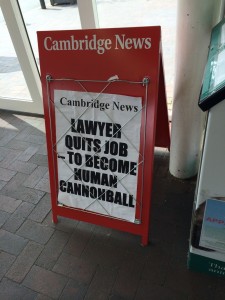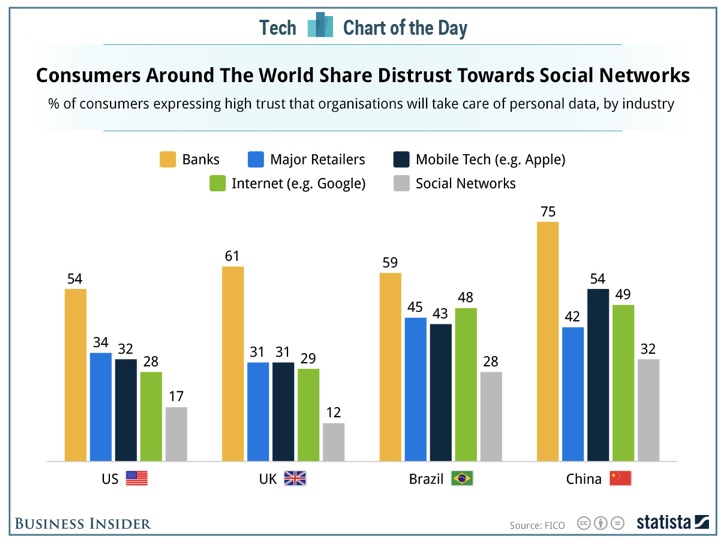We’re in Provence, where there have been some dramatic thunderstorms, followed by this lovely peaceful evening.
On not mentioning the war
The only really unpleasant aspect of the German team’s demolition of their Brazilian opponents in the world cup was the inane commentary of the British TV commentators and pundits. They were as staggered by the comprehensiveness of the Germans’ superiority as were the wretched Brazilian spectators, but lacked the verbal sophistication to articulate a single interesting or original thought. Instead what came flooding out was the incessant burbling of tired cliches. The Germans were “clinical”, “ruthless”, “relentless”, “efficient”, etc. etc.
What these hapless pundits were doing, of course, was expressing the subliminal prejudices of many of their fellow-countrymen (I was going to write ‘fellow-citizens’ until I remembered that Britain doesn’t technically have any citizens; it only has subjects — one of the USPs of living under a monarchy) about Germany. It’s as if Brits are living in a time-warp from which most of the rest of the world has long escaped. You’d never gather from reading the British tabloid media that, in almost every aspect of modern life that matters, Germany has long ago met the criteria for a modern, liberal, democratic, prosperous and sustainable society, whereas Britain remains chronically addicted to imperial afterglow, public and private debt, an overweening financial services industry, housing bubbles, corrupt campaign funding, short-termism and circuses like those provided by Premiership football.
Roger Cohen had a nice piece in the New York Times the other day which makes this point rather well. The world-beating German football team, for example, is the product of long-term planning, of nurturing homegrown talent. And this is typical of the country. Germany, Cohen writes,
does not believe in quick fixes. It is worth repeating because it is an idea that sets the country apart in an age where a quick killing, tomorrow’s share price, instant gratification and short-termism are the norm. Germans on the whole think what the rest of the world builds is flimsy. Anyone who has felt the weight of a German window, or the satisfying hermetic clunk of one closing, knows they have a point. The German time frame is longer.
Why Germany differs in this may be debated. Having plumbed the depths of destruction and evil, having understood the depravity into which a “civilized” country may descend, Germany had to rebuild from the “Stunde Null,” or “Zero Hour,” of 1945. It had to hoist itself up step by step; and it had to build into its reconstituted self the guarantees that ensured no relapse was possible. This took planning. It took persistence. It involved prudence. Even before all this the first German unity of 1871 came only after centuries of strife at the European crossroads. Geborgenheit is an untranslatable German word but no less important for that. It means roughly warmth, home, trust and security, everything that is so precious in part because it may go up in smoke.
Perhaps German success is the result of the immensity of past German failure. I think that has something to do with it, even a lot. Whatever its roots, German success is important and instructive.
It is. Much of what I find admirable in German society is the product of what the BBC commentators found awe-inspiringly weird about the German performance: careful preparation, long-term thinking, persistence, a pride in doing things well. I’m a photographer and I’ve always used Leica cameras, for example. I also use terrific cameras made by Nikon in Japan, but what’s striking about the German cameras is the extent to which those who make them are involved with the products they create. This video for example showing how the Leica M9 is assembled makes the point, as does this video of how the Rohloff Speedhub is made.
Of course one can find examples of wonderful products made in many other countries (think of Rolls-Royce aero engines or Maclaren racing cars in the UK, or Nikon and Canon cameras and lenses in Japan) but these are nowadays, exceptions that tend to prove a rule, whereas in Germany this high-tech engineering culture seems more pervasive.
There is also a radical difference in the managerial culture of German enterprises. Cohen writes:
If you talk to business leaders of the German Mittelstand, the small and medium-sized companies at the heart of the country’s economy, you are transported to another world. You sit in stark boardrooms, so devoid of indulgence they resemble classrooms, with unassuming people leading billion-dollar companies, and they speak of loyalty, 10-year plans, prudence and quality. If one word induces a look of horror, it is debt. The notion of making money with money, of financial engineering rather than engineering itself, is alien.
The contrast with the Anglo-American mindset into which the UK seems increasingly locked is stark. I know which I prefer.
Quote of the Day
“I would never die for my beliefs because I might be wrong”.
Bertrand Russell
I think he also wrote somewhere that the slogan “My country, right or wrong” is as absurd as “My mother, drunk or sober”.
Books like running water
This morning’s Observer column
Once upon a time, 12 years ago to be precise, David Bowie said something very perceptive. “Music itself is going to become like running water or electricity,” he told a New York Times reporter. “So it’s like, just take advantage of these last few years because none of this is ever going to happen again. You’d better be prepared for doing a lot of touring because that’s really the only unique situation that’s going to be left. It’s terribly exciting. But on the other hand it doesn’t matter if you think it’s exciting or not; it’s what’s going to happen.”
I thought of Bowie and his perceptiveness last week, when – in a rare piece of corporate carelessness – Amazon inadvertently provided a fleeting glimpse of what it has in store for the publishing industry. A new page appeared on its website only to be very quickly withdrawn, but not before it had been cached by Google and spotted by a hacker website.
What was on this elusive page? Why, nothing more or less than an introduction to a new service called “Kindle Unlimited”. Subscribers will be invited to “enjoy unlimited access to over 600,000 titles and thousands of audiobooks on any device for just $9.99 a month”. One commentator described it as “Netflix for books”. David Bowie would doubtless have said that it’s the turn of books to become like running water or electricity.
Amazon has now confirmed the launch of the service.
Reclaiming lives from social media
Nice opening to a piece by Nick Bilton about time-wasting on social media.
One day in the early 1920s, a young Ernest Hemingway rushed along the streets of Paris seeking shelter from a downpour. He soon came upon a warm cafe on the Place St.-Michel and ducked inside.
After hanging his rain jacket, Hemingway ordered a café au lait, pulled out a notepad and pencil from his pocket and began writing. Before long he had fallen into a trancelike state, oblivious to his surroundings as he penned a story that would later become the first chapter of his memoir, “A Moveable Feast.”
If Hemingway were alive in 2014, he might not have finished what he started writing that day. Realistically, he probably wouldn’t have even put a pen to paper.
Instead, he might have ducked into the cafe, pulled out his smartphone and proceeded to waste an entire afternoon on social media. Perhaps he would update his Facebook to discuss the rogue weather, snap a picture of his café au lait to post on Instagram and then lose the rest of the afternoon to Twitter…
Bilton is now trying to reform. His first step is to read a book first thing into the morning before he switches on his computer. Well, it’s start.
Disupting ‘disruption’
Yesterday’s Observer column.
The Innovator’s Dilemma and the Big Idea that it spawned – disruptive innovation – has been kind to its author. Professor Christensen is widely revered as a guru in the tech world. The idea of disruptive innovation appeals to the vanity of the start-up culture: it conjures up images of high-IQ geeks subverting the empires of men in suits, or at any rate in chinos. Christensen has extended his analysis to other, non-technological areas and industries. Education, for example, is apparently ripe for disruption. And of course companies such as Uber and Airbnb are supposedly bringing innovative disruption to the taxi and hotel industries respectively. Everybody and his dog wants to be in the disruption business.
And then, a few weeks ago, a Harvard historian had the temerity to ask if Emperor Christensen had any clothes. Writing in the New Yorker, Jill Lepore gave The Innovator’s Dilemma the kind of unsympathetic third degree to which historians regularly subject the books of their professional peers. Her conclusion was unflattering, to say the least…
Legal outcomes
Perhaps he’s been reading Richard Susskind’s book?
Quote of the day
“I would rather have questions that can’t be answered than answers that can’t be questioned”
Richard Feynman
Facebook, ethics and us, its hapless (and hypocritical?) users
This morning’s Observer column about the Facebook ’emotional contagion’ experiment.
The arguments about whether the experiment was unethical reveal the extent to which big data is changing our regulatory landscape. Many of the activities that large-scale data analytics now make possible are undoubtedly “legal” simply because our laws are so far behind the curve. Our data-protection regimes protect specific types of personal information, but data analytics enables corporations and governments to build up very revealing information “mosaics” about individuals by assembling large numbers of the digital traces that we all leave in cyberspace. And none of those traces has legal protection at the moment.
Besides, the idea that corporations might behave ethically is as absurd as the proposition that cats should respect the rights of small mammals. Cats do what cats do: kill other creatures. Corporations do what corporations do: maximise revenues and shareholder value and stay within the law. Facebook may be on the extreme end of corporate sociopathy, but really it’s just the exception that proves the rule.
danah boyd has a typically insightful blog post about this.
She points out that there are all kinds of undiscussed contradictions in this stuff. Most if not all of the media business (off- and online) involves trying to influence people’s emotions, but we rarely talk about this. But when an online company does it, and explains why, then there’s a row.
Facebook actively alters the content you see. Most people focus on the practice of marketing, but most of what Facebook’s algorithms do involve curating content to provide you with what they think you want to see. Facebook algorithmically determines which of your friends’ posts you see. They don’t do this for marketing reasons. They do this because they want you to want to come back to the site day after day. They want you to be happy. They don’t want you to be overwhelmed. Their everyday algorithms are meant to manipulate your emotions. What factors go into this? We don’t know.
But…
Facebook is not alone in algorithmically predicting what content you wish to see. Any recommendation system or curatorial system is prioritizing some content over others. But let’s compare what we glean from this study with standard practice. Most sites, from major news media to social media, have some algorithm that shows you the content that people click on the most. This is what drives media entities to produce listicals, flashy headlines, and car crash news stories. What do you think garners more traffic – a detailed analysis of what’s happening in Syria or 29 pictures of the cutest members of the animal kingdom? Part of what media learned long ago is that fear and salacious gossip sell papers. 4chan taught us that grotesque imagery and cute kittens work too. What this means online is that stories about child abductions, dangerous islands filled with snakes, and celebrity sex tape scandals are often the most clicked on, retweeted, favorited, etc. So an entire industry has emerged to produce crappy click bait content under the banner of “news.”
Guess what? When people are surrounded by fear-mongering news media, they get anxious. They fear the wrong things. Moral panics emerge. And yet, we as a society believe that it’s totally acceptable for news media – and its click bait brethren – to manipulate people’s emotions through the headlines they produce and the content they cover. And we generally accept that algorithmic curators are perfectly well within their right to prioritize that heavily clicked content over others, regardless of the psychological toll on individuals or the society. What makes their practice different? (Other than the fact that the media wouldn’t hold itself accountable for its own manipulative practices…)
Somehow, shrugging our shoulders and saying that we promoted content because it was popular is acceptable because those actors don’t voice that their intention is to manipulate your emotions so that you keep viewing their reporting and advertisements. And it’s also acceptable to manipulate people for advertising because that’s just business. But when researchers admit that they’re trying to learn if they can manipulate people’s emotions, they’re shunned. What this suggests is that the practice is acceptable, but admitting the intention and being transparent about the process is not.



